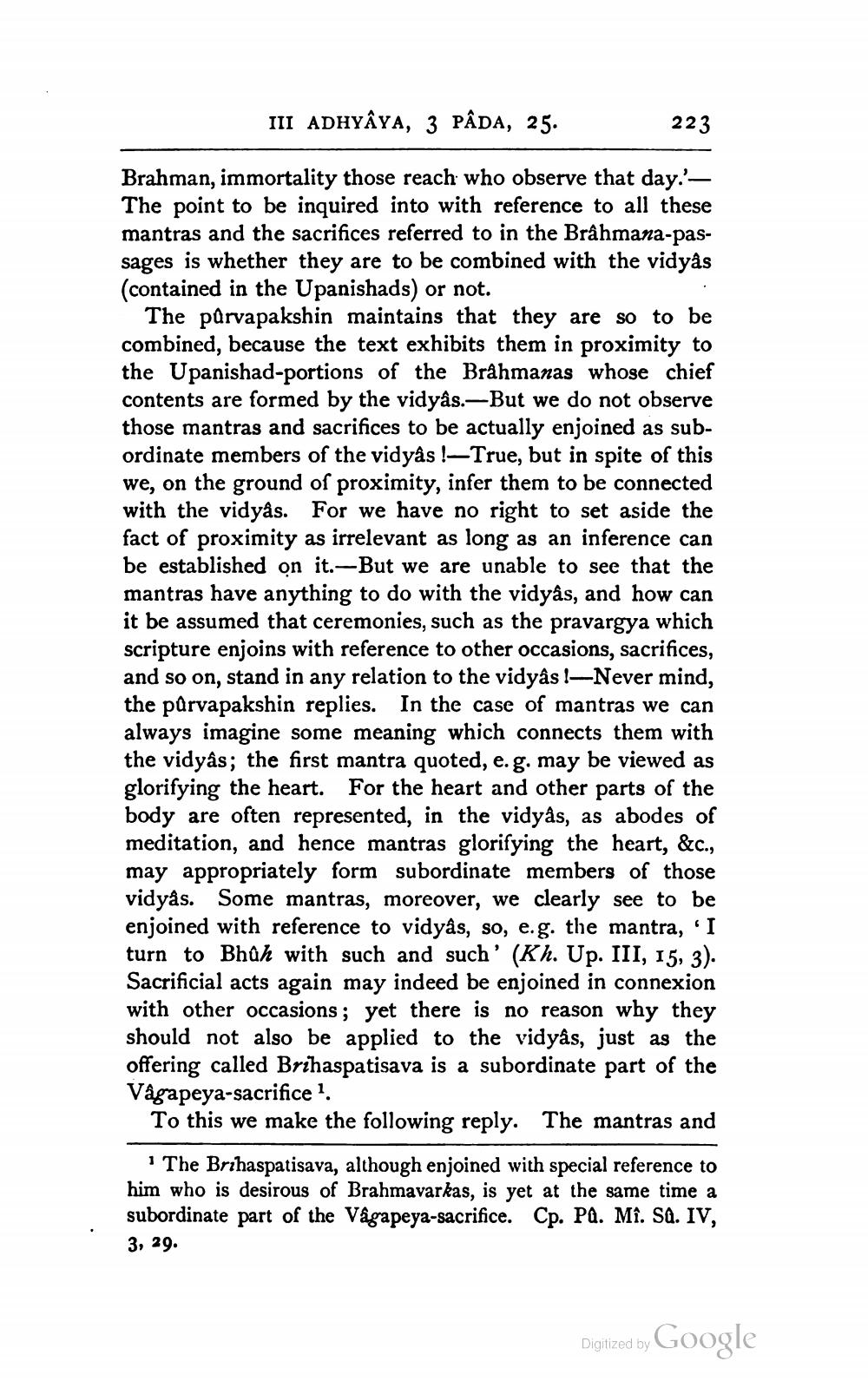________________
III ADHYAYA, 3 PÂDA, 25.
223
Brahman, immortality those reach who observe that day.'— The point to be inquired into with reference to all these mantras and the sacrifices referred to in the Brâhmana-passages is whether they are to be combined with the vidyas (contained in the Upanishads) or not.
The pūrvapakshin maintains that they are so to be combined, because the text exhibits them in proximity to the Upanishad-portions of the Brâhmanas whose chief contents are formed by the vidyâs.—But we do not observe those mantras and sacrifices to be actually enjoined as subordinate members of the vidyâs !—True, but in spite of this we, on the ground of proximity, infer them to be connected with the vidyâs. For we have no right to set aside the fact of proximity as irrelevant as long as an inference can be established on it. But we are unable to see that the mantras have anything to do with the vidyâs, and how can it be assumed that ceremonies, such as the pravargya which scripture enjoins with reference to other occasions, sacrifices, and so on, stand in any relation to the vidyâs 1—Never mind, the pūrvapakshin replies. In the case of mantras we can always imagine some meaning which connects them with the vidyâs; the first mantra quoted, e.g. may be viewed as glorifying the heart. For the heart and other parts of the body are often represented, in the vidyas, as abodes of meditation, and hence mantras glorifying the heart, &c., may appropriately form subordinate members of those vidyås. Some mantras, moreover, we clearly see to be enjoined with reference to vidyâs, so, e.g. the mantra, 'I turn to Bhûh with such and such' (Kh. Up. III, 15, 3). Sacrificial acts again may indeed be enjoined in connexion with other occasions; yet there is no reason why they should not also be applied to the vidyâs, just as the offering called Brihaspatisava is a subordinate part of the Vågapeya-sacrifice 1
To this we make the following reply. The mantras and
1 The Brihaspatisava, although enjoined with special reference to him who is desirous of Brahmavarkas, is yet at the same time a subordinate part of the Vågapeya-sacrifice. Cp. Pa. Mî. SQ. IV, 3, 29.
Digitized by Google




